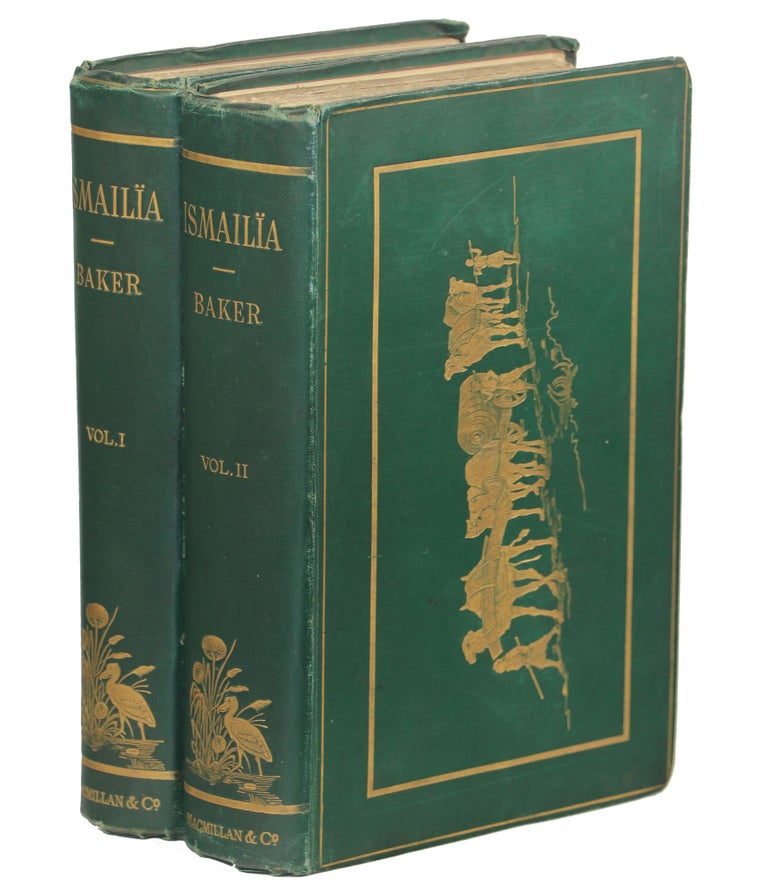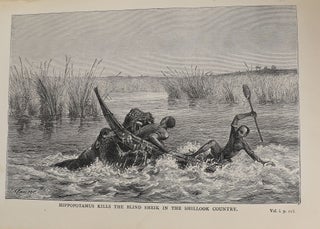Ismailia; A Narrative of the Expedition to Central Africa for the Supppression of the Slave Trade
London: Macmillan and Co., 1874. First edition. Hardcover. 2 vol. 8vo. [3], vi-viii, [1], 2-447, [2], 2-55 (pages of publisher's advertisements), [1]; [3], vi-viii, [1], 2-588 pp. Green cloth with a gold rule on each board, decorations in gold on the front boards with gold lettering and decorations on the spine. Coated brown endpapers and pastedowns. Each volume illustrated with a frontispiece; volume one with a fold-out map and with twenty-one plates; volume two with twenty-eight plates and a color full-page map. Expedition organized by Ismail, Khedive of Egypt. Blackmer 1142. Hogg 3508. Howgego B10. Ibrahim-Hilmy 49. In his first expedition to Egypt and the Sudan, Baker learned Arabic, and took notes on the geology of the Nile and its tributaries. The second expedition, which is recorded here, was one Baker undertook to annex the Sudan for Egypt and to abolish the slave trade there. He took his second wife with him, and she provided military and domestic help to the expedition party. The Bakers fought several intense battles against the slave traders, and engaged in big game hunting. Several of the illustrations depict these experiences. The second expedition began in 1869, the year in which the Khedive Isma'il appointed Baker to a four-year term as governor-general of the equatorial Nile basin. To that date it was the most senior post a European had received under the Egyptian government. The Khedive provided Baker with a small navy to annex the area, suppress the slave trade, establish cotton production, and to open the regional lakes up to trade networks. Baker's attempt to annex the Sudan was met with fierce resistance, particularly by the slave traders. However, it is worth noting that after defeat, many of the men working for the slave traders joined Baker in his colonization efforts. Baker and his party's work helped to suppress the slave trade in some areas, but others remained impossible to influence. Egyptian influence was extended southwards, but not to the entire region. Unhappily for Egypt, Baker could not annex two of the wealthy kingdoms in the area either. Baker remains famous for being the first to explore the source of the Nile, and for writing Ismailia, one of the most important Victorian narratives of African travel. Very Good. Item #000010386
A few traces of wear to the edges of the boards, the rear pastedown of volume one has a binder's ticket and a faint sticker ghost.
Price: $1,250.00


